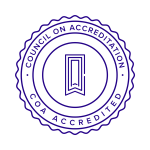.png)
What is the NOURISH-OK Study?
NOURISH-OK stands for Nutrition to Optimize, Understand, and Restore Insulin Sensitivity in HIV for Oklahoma. Surveys conducted by Tulsa CARES and others found that more than half of Oklahomans living with HIV have problems getting enough healthy food to eat for themselves and their families. The NOURISH-OK Study will help Tulsa CARES understand what causes food insecurity, how it may lead to health problems in HIV, and how we can help improve food security for our clients.
What is Insulin Sensitivity?
Insulin is the hormone in the body that allows the body’s cells to turn sugar into energy. When the body’s cells are sensitive to insulin, blood sugar levels can stay healthy. The opposite of insulin sensitivity is insulin resistance. When the body’s cells stop responding as well to insulin, blood sugars go up and weight gain can occur. Insulin resistance happens with many chronic diseases, including lipodystrophy, pre-diabetes, diabetes, non-alcoholic fatty liver disease, and polycystic ovarian syndrome (in women). Much less is known about why people living with HIV develop insulin resistance at higher rates and what may be causing insulin resistance. Emerging research suggests that food insecurity may be linked to insulin resistance, but we don’t know why this happens. Most scientists believe that insulin resistance can be reversed in the general population through certain eating and lifestyle changes, but we don’t know if these same things will work in people with HIV. The NOURISH-OK Study will help us to answer these questions so that food programs and nutrition services can better support the holistic health needs of clients.
How can I get involved?
The active part of this study is two in-person visits at Tulsa CARES plus two phone surveys over a 3-month period. During the in-person visits, you will complete a nutrition and vital signs assessment, complete surveys, and provide a fasting blood sample through a blood draw and fingerstick.If you choose to participate, you will receive $50 for each in-person visit and $30 for each phone survey, for up to $160 as a thank you for your time and effort. You will also receive a $15 gas card for both in-person visits. All participants will receive 3, monthly boxes of special food and cooking items valued at around $350. One half of participants will get the food boxes while they are actively in the study and the other half of participants will get the food boxes after they complete the study.
To confirm your eligibility and schedule an appointment, please call the study team directly at (918) 704-2872 or call Tulsa CARES at 918-834-4194 and ask to speak with someone from the NOURISH team. You can also send an email to nourish@tulsacares.org.
Frequently Asked Questions about NOURISH-OK Study Participation
-
Do I have to be in-person to participate in this study?Yes, this study requires completion of special tests that can only be done in person. We understand study participants have very busy lives and we offer flexible appointment times based on your availability. Please reach out to our study coordinator, Lacey Caywood, at (918) 834-4194 or nourish@tulsacares.org to discuss appointment time options.
-
If I can’t come to Tulsa CARES, is there another way I can participate?Possibly. Tulsa CARES is the primary enrollment location for this study and most appointments will occur at this site. We are also working with multiple medical and social service providers to help offer enrollment appointments at their locations from time to time. Please reach out to Lacey Caywood, at (918) 834-4194 or nourish@tulsacares.org to discuss enrollment site options.
-
I don’t live in Tulsa, can I still participate?Yes, we want to include people living in anywhere in Oklahoma, regardless of where they get their medical care. Please reach out to Lacey Caywood, at (918) 834-4194 or nourish@tulsacares.org to discuss an enrollment time and location that best fits your schedule.
-
Do I get paid or will I get anything else for participating?Over the 16-week study period, if you complete both in-person visits and both phone surveys you will receive up to $160, including $50 for each in-person visit and $30 for completing each phone survey. Travel assistance is also available for each in-person visit ($15 gas card). All participants are eligible to receive 3 monthly home delivered food boxes, either during the study period or after the study period.
-
How is my privacy protected?We take every precaution to keep your information private. We will strictly follow all privacy measures instituted by the OU Institutional Review Board and that meet or exceed Tulsa CARES’ accreditation requirements. If you choose to participate, you will be assigned a unique study ID number that will be used to do identify all of your study information, including your blood sample, survey responses, and other information collected during the study appointment.
-
How is my information and data stored?Your personal identifiable information (including your name, email, mailing address, and phone number) is kept on a secure server, separate from all the study information we collect (including your blood sample, survey responses, and other information collected during the study appointment). Only authorized study staff will have access to the key that links you to your study ID number. After your study appointment is finished, the authorized study staff will use this study ID number to look up your personal contact information so that we can mail you your personalized nutrition report.
-
Can I smoke cigarettes before my study appointment?Yes, you can smoke cigarettes before your study appointment. During the study appointment there will be designated smoke breaks, if you want them.
-
What COVID-19 precautions is the NOURISH-OK study taking?Masks will be worn by both study staff and participants at all times during the study appointment. Additionally, all study staff have been fully vaccinated for COVID-19.
-
I take my medication in the morning, can I participate?Yes, you can still participate if you take your medications in the morning. However, this study requires a 10 hour fast (not eating or drinking anything except water) before the appointment. If you are taking any medications that require they be taken with food, we encourage you to talk with your pharmacist, primary care physician, or other medical professional about your options to delay your morning dose until after your fasting blood draw. Please reach out to our study coordinator, Lacey Caywood, at (918) 834-4194 or nourish@tulsacares.org with any questions.
-
Will you have food/drink available?Yes, after your fasting blood draw is complete, we will have a variety of snacks and beverages available at no charge to you.
-
Can I tell my friends?Absolutely! We want all eligible individuals to have the chance to participate and be represented.
-
I use or have used recreational drugs or drugs not prescribed to me. Can I participate in the study?Yes, we want all eligible individuals to have the chance to participate and have their voices heard, regardless of their substance use history.
-
If I share information about my drug use history with NOURISH-OK study staff, will you report me?No, all study staff take every precaution to protect all your information. Additionally, as an NIH-funded study, all study information is protected under a Certificate of Confidentiality, meaning study staff cannot be forced to share identifiable information by any federal, state, or local civil, criminal, administrative, legislative, or other proceedings. The only information we are required to report by law is current child abuse, elder abuse, or if a participant threatens violence to themselves or others.
-
Are you going to test my blood for drugs?No, this study will only measure insulin, blood sugar, inflammation, nicotine, and immune markers. During the study enrollment process, before you agree to participate, the study staff member will go over all of the measures that will be taken from your blood sample to answer any additional questions you may have.
-
What forms will I have to sign in order to participate?You must give your informed consent before participating in the NOURISH-OK Study. The consent process includes telling you more about the study, covering what is expected of you, how the collected data is going to be used, and what your rights are as a participant. You can view the study’s main consent, HIPAA consent, and tissue (blood) research consent forms before your research appointment. At the beginning of your appointment, a research staff will review all the forms with you and answer any questions you have before being asked to sign.
-
If I have other questions, who do I contact?If you have any questions that are not answered here, please reach out to our study coordinator, Lacey Caywood, at (918) 834-4194 or nourish@tulsacares.org
Research reported on this webpage was supported by National Institute of Diabetes and Digestive and Kidney Diseases of the National Institutes of Health under award number R01DK127464. The content is solely the responsibility of the authors and does not necessarily represent the official views of the National Institutes of Health.
Publications and Articles
Meet the Team
.png)


.png)
.png)
.png)

.png)
